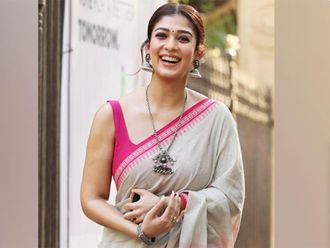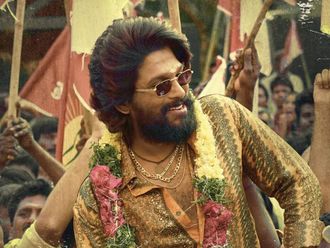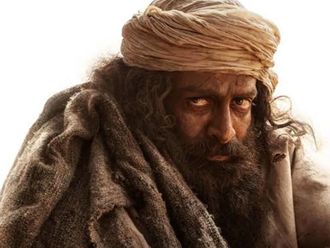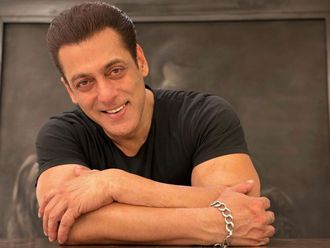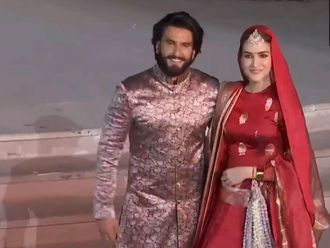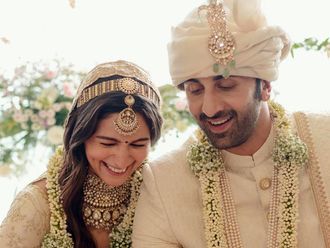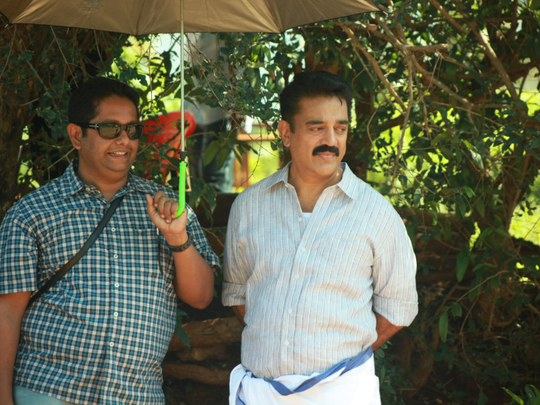
Drishyam, the critically and commercially acclaimed Malayalam film, reminded the industry that for a film to succeed, all that is needed is a story with a soul that connects with the ordinary cinema-goer. Frills and glamour are not prerequisites.
Drishyam was remade in Kannada and Telugu last year. This weekend, the Tamil remake, Papanasam releases, while the Hindi remake, Drishyam, will come out later this year.
Never before has a story impacted the Indian film industry like this.
In Papanasam, Gauthami makes a comeback after fifteen years opposite Kamal Haasan. Other members of the cast include Nivetha Thomas, Bollywood’s Anant Mahadevan and Delhi Ganesh. Kalabhavan Mani reprises the role of a cop, played by Kalabhavan Shajon in Drishyam. The film was shot in Kuttralam, Thirunelveli, Thenkasi and Thodupuzha.
Director Jeethu Joseph did not attend a film school but was driven by his love for cinema to make his first film, Detective, a thriller with Suresh Gopi in the lead. Drishyam was his last release. As he awaits Papanasam, his Tamil debut, Joseph, who has five films under his belt, spoke exclusively to tabloid!.
Did you expect Drishyam to become such a hit?
Not at all. I never thought that it would become this big, although I was confident of having a good story and with [Mohanlal] on board it was an addition to a good subject. Finally, it rests with the audience. The entire team was left stunned following its release.
I believe that films are a depiction of life and if you can narrate a story from life with an entertainment value, it is elevated to a higher level. The success of Premam [Alphonse Puthran’s recent Malayalam film] is testimony to that. People visit theatres for a break and [to] seek entertainment. I don’t want to cry on an evening out. All my stories, except My Boss are drawn from life, like Detective and Mummy and Me.
Where did you find the idea for Drishyam?
In 2000, while in college, I was chatting with friends and there was talk about a common friend. It concerned two families and their issues over their son and daughter. There was no murder though, but both the families felt wronged over an issue and at the same time believed they were right in what they had done — similar to George Kutty fighting to protect his daughter and the cop IPS Geetha, who does not hesitate to resort to force while searching for her missing son.
That set me thinking and I wondered if I could turn that issue into a love story or a drama. In the initial stages of scripting, there was no death in the story. I considered placing the story around blackmail. This thread grew gradually over five to six years, like most stories of mine. Even now I am chewing on some old idea that will see life on screen few years later. Reading newspaper reports of youngsters misusing phones fixed the peg for Drishyam.
Have you made any changes in Papanasam?
Drishyam is script-oriented and did not demand much filmmaking. There were not many changes made for Papanasam, because the script has to travel along the same journey. It’s about family relationships and the intense bond they share. While Drishyam was set in a Christian background, Papanasam, is pivoted around Suyambulingam, a Nadar cable operator. There are small changes in his characterisation. The Tamil dialogues were written by Jeyamohan. Writer Sukka assisted the team with Thirunelveli slang.
You have recast Esther in Papanasam. Why?
She performed well and is such a cute girl. I did not want to take a chance with a new actress. It was the same with Asha [Sharath]. My wife Linda, who has seen her on television, suggested her name while casting for Drishyam.
How was it working with Kamal Haasan?
Before filming, some people warned me that he was a director and likely to interfere, but Kamal sir was a complete director’s actor just like [Mohanlal]. It was comfortable working. When I suggested to him to take a look at the monitor after a shot, he said, ‘That’s your job’.
Mohanlal and Kamal Haasan are two living legends and we should not compare them. It’s wrong. Each has their own style. Kamal sir presented Suyambulingam in his own style. We discussed scenes on the spot and he gave his inputs.
Your earlier films have English titles but with Drishyam, you broke this trend. Why?
Prior to Drishyam, many people were questioning me on the English titles. I don’t believe in numerology or stuff like that. I believe in working hard and leave the rest to God. When it came to Drishyam I was determined to bust the notion that people had. It came from a line that IPS Geetha delivers in the film and I found it so apt. The same title was used in Kannada and Telegu and now the Hindi remake too.
Kamal suggested Papanasam, which means cleansing of sins. It suited the story and we did not want to repeat the same title.
Coming from an agricultural family, how did films happen?
I yearned to make films. While my parents were supportive, they insisted that I complete my college education first. After marriage, my wife Linda was not keen that I work in films so I managed my estate and business for some time. But it was not doing well.
During a visit to my cousin’s house in Trivandrum, Linda noticed a brochure of Jayaraj’s [Malayalam director] film there. Linda talked to my cousin about my film aspirations. A few days after our return home, I got a call from my cousin, who had spoken to Jayaraj. I entered films in 2003 as his assistant. I have learnt through watching films and understanding how they are made. I am learning all the time, including new styles from the current crop of directors.
What’s next?
I am presently working with Dileep on my next film, Life of Joskutty. It is the story of this man and his journey, beginning as a ten-year-old to forty years.



